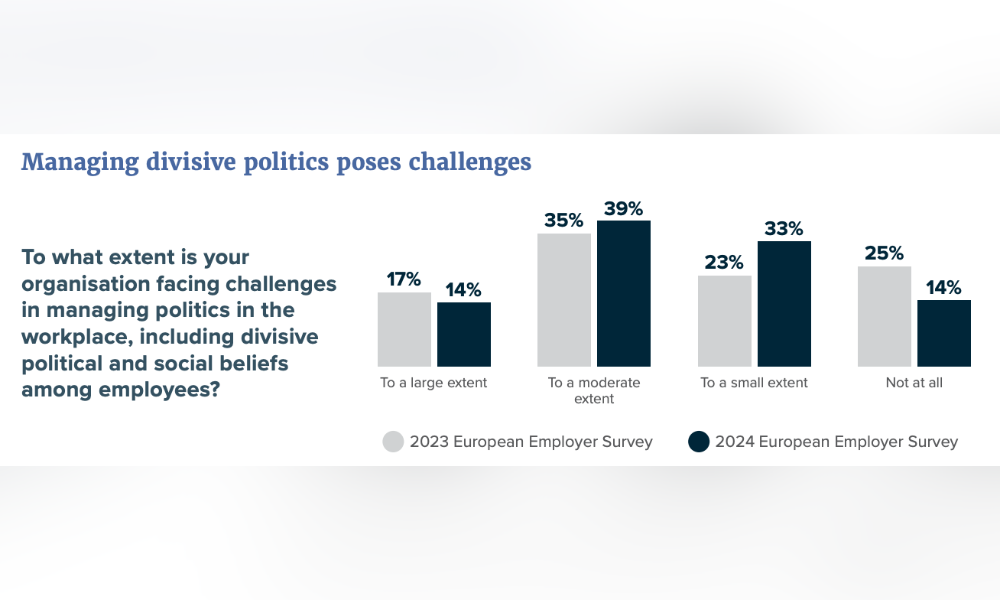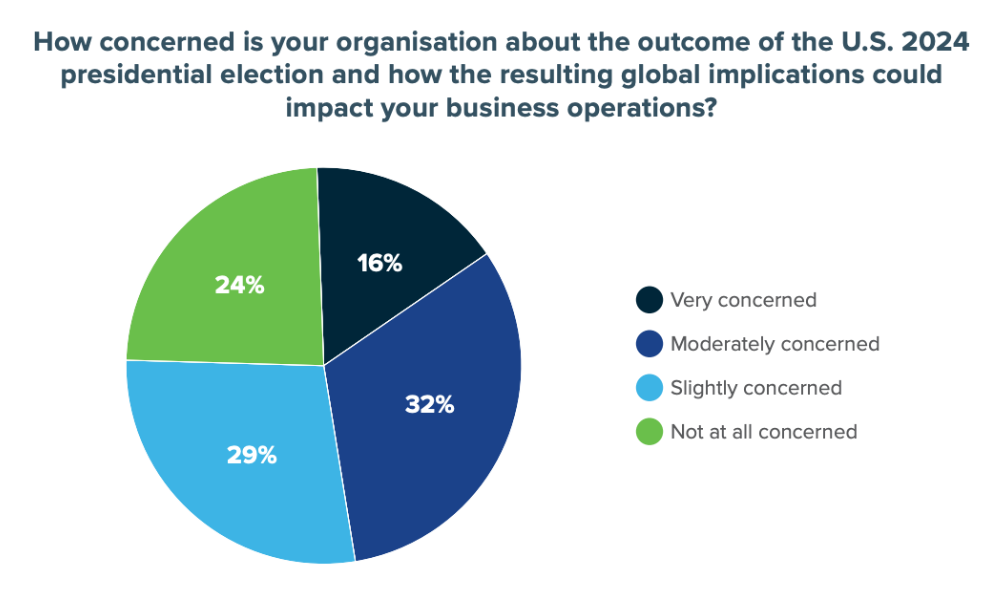
Survey shows U.S. politics are concerning employers across the pond

European employers who are struggling to manage political discussions in the workplace saw a sharp increase in 2024, according to a new report from Littler.
The survey, based on feedback from nearly 630 HR executives, business leaders, and in-house lawyers from across Europe, revealed that 86% of respondents find it difficult managing political discussions and divisive beliefs in the workplace.
This is a sharp increase from the 75% recorded in 2023, according to the report.

Source: Littler's European Employer Survey Report
In addition to political discussions, a significant 83% of respondents also said they are concerned about potential employment law changes arising from elections in 2024 and 2025.
These political concerns are not limited to European elections. More than three-quarters (77%) of European employers are also concerned about how the U.S. presidential election might impact their business operations.

Source: Littler's European Employer Survey Report
"European employers' level of concern regarding the U.S. presidential election indicates just how global the workplace has become," said Stephan C. Swinkels, Littler Partner and co-lead of the firm's global practice, in a statement.
"Political changes in major economies like the U.S. are having a local impact on organisations across Europe, but this is also a meaningful change in mindset as management takes a global view towards the state of the organisation. What happens across oceans can and does affect their outlook."
Meanwhile, other economic, geopolitical, and cultural trends are adding another layer of complexity to workforce management.
According to the report, European employers are also concerned about these issues over the next 12 months:
"Ongoing cultural debates and geopolitical events—such as the war in Gaza and the growing salience of LGBTQ+ rights issues—are bringing political discourse into the workplace in novel ways," said Jan-Ove Becker, Littler Partner in Germany, in a statement.
"Managing varying beliefs and opinions is becoming a significant employee relations issue for C-suite executives and creating an environment where employers are expected to do more than simply manage their workforces. Business leaders are increasingly expected to take positions on divisive topics, and even silence itself can become a stance."